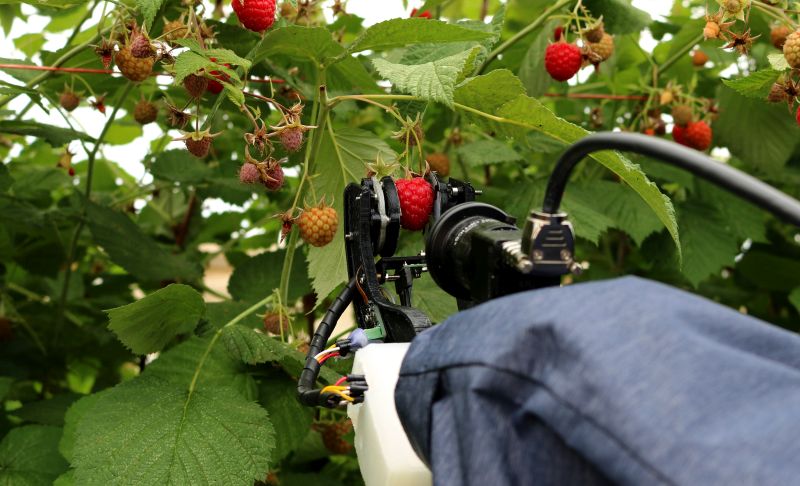
Horticultural businesses have been encouraged to invest in technology amid the sector's challenge of accessing a dwindling labour supply.
Labour has been reported to account for up to 70 per cent of variable production costs in some areas of UK horticulture now.
Reduced access to workforce could in turn see productivity levels fall at a time when consumer demand for plant based products is at its highest.
Growers are actively seeking solutions. Indeed, the UK horticultural sector is not alone in its challenge to access labour.
Germany is home to 81 million people and they have more than 1.2 million vacancies. The country’s federal labour office estimates that they’ll need 12 million new workers in the next 30 years.
Elsewhere, Australia, New Zealand and South Korea all have seasonal worker schemes in place in a bid to attract more workers.
But one of the ways UK horticultural business G’s is responding to the challenge is by investing in new technology.
Precision farming manager, Jacob Kirwan, said: “We consider how we can use technology to ensure our supply chain is robust. We want to make the supply chain agile, so it can react to challenges like Brexit and reduced access to labour, as well as reducing our environmental impact.
“To address this challenge, since 2012 we’ve invested £8 million to automate harvest technology in lettuce crops which has increased productivity by 60 per cent and a celery auto-lifting harvester, increasing productivity by 50 per cent.”
Robotic harvester
G’s has also collaborated with the University of Cambridge to develop a prototype robotic lettuce harvester.
By using technology to bag, label and transfer the product from the field, the company's reliance on labour is reduced.
Access to manual labour is also decreasing, so with the latest technology, G's have one skilled person guiding a camera to carry out a job, which would have previously been done by many more.
Mr Kirwan added: “We expect the labour challenge will continue, with the Living Wage expected to increase by 15 per cent up to £9 per hour in 2020, alongside the retail price of products like iceberg lettuce halving from 2014 – 2018, there is retail price deflation.
“Workers shouldn’t fear investment in technology because it will still create jobs, they will just be different kinds of jobs.
“Rather than less skilled repetitive roles, they’ll be semi-skilled and highly skilled jobs, where people with experience working in the field can apply and receive training to develop with the new technology,” he said.
It comes as growers can share business challenges in the SmartHort Automation Challenge where applications will be selected to develop automated or robotic solutions by engineers from the University of Warwick’s WMG. Closing date is 29 March 2019.
